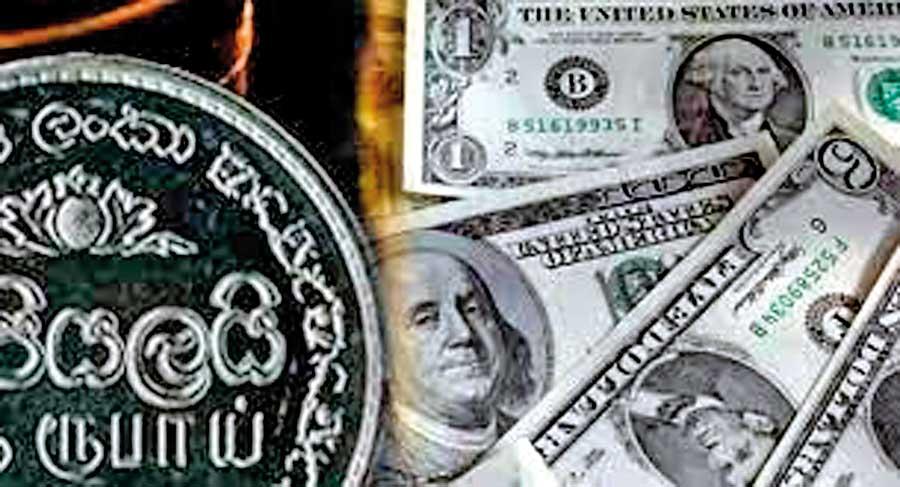Reply To:
Name - Reply Comment

Our dear motherland is once again at crossroads with an economy in disarray and near tatters! She is struggling to find the way forward beset by a series of issues that are causing uncertainty, fear and insecurity.
struggling to find the way forward beset by a series of issues that are causing uncertainty, fear and insecurity.
The financial situation of the country leaves chilling feelings in all those who have become sensitive to the prevailing conditions of the national economy. Without a stable and strong economy, a country in today’s world would just cave into bankruptcy. We are also hemmed in conditions that are affecting people globally as there are many international issues at stake worrying the world’s peoples across continents such as the devastating pandemic Covid-19 still continuing its infecting and killing spree around the world, rising coal and oil prices as well as impending signs of global inflation. Many third-world countries including those of middle-income status are in the grips of survival, having to cater to the basic needs of their own people even as relating to others beyond their borders and territories. Sri Lanka finds herself down in the dumps too, with an unprecedented economic crisis never seen before.
The begging-bowl syndrome had been our lot in the last few decades, with conditions worsening gradually, burdened with having to borrow heavily and grappling with the unpleasant task of having to servicing the debts. The last few months have seen a dramatic debacle of an unimaginable downturn in the national economy. The demonic impact of the pandemic coupled with bad policy-making and inefficient administration witnessed in the state machinery have by now sunk the country in deep trouble. Undoubtedly there looms a national emergency which is calling for swift action. Yet, solutions seem hardly forthcoming with even the governing authorities confused in a plethora of viewpoints, appearing incapable of grappling with a situation getting daily more and more complex. What has to be done and who is to go about it remain an unanswered puzzle in the thought of many. Economic experts have sounded serious warnings about dire consequences the nation will be coerced to face, if the urgency of the national situation is not seriously taken into account and measures are not adopted to avert a national calamity with people pushed to hunger, unemployment, rising cost of living, escalating price of food items, not to mention psychological trauma and despair. The rural poor and the daily labourer would be at the butt-end of this worsening national crisis. No palliative words can bring any solace to the actual struggles of the poor victimised in this sad plight to which the country has been plunged into.
"The begging-bowl syndrome had been our lot in the last few decades, with conditions worsening gradually, burdened with having to borrow heavily and grappling with the unpleasant task of having to servicing the debts. The last few months have seen a dramatic debacle of an unimaginable downturn in the national economy"
The almighty dollar which makes the entire world go on its knees and subservient to its dictatorship, is exerting its over-arching impact on the global economy since international trade mediates through this powerful currency in the global market. Each country has to make sure that it has enough foreign reserves in terms both of gold and dollars to be able to carry on its trade and ensure financial and fiscal stability within. Exports have to be strengthened, imports reduced as much as possible as well as ensuring local agriculture, improving industry and ameliorating services such as education, health care, pension scheme and the needed infra-structure for transport and food production. In a country that was once the granary of the East along the silk-route, has succumbed into importing even rice. It is a shame and a disgrace to our farmers who have been the backbone of our agricultural economy from the days of the ancient kings and kingdoms we have lived through. This heritage has to be honored at all costs. The nation cannot lie to the farmer who is a king once freed of the stains of the field. It is very simply the oppression of the poor on a national level and indeed a structural evil and injustice to their brow and sweat.
Now with the chemical vs organic fertiliser debacle, the situation has indeed become chaotic. Had this change of policy been introduced gradually in a phased-out strategy, with the farmer population informed earlier of this radical change, this tragedy would not have overtaken the farming community. The traditional exports have gone on the wane and one must probe as to why the tea output continued to dwindle with plantation workers crying for increase in their daily wage. The mafia unscrupulously at work affecting in a radically destructive and despicable manner the issue of rice, sugar (Rs. 15 billion scam) etc. has to be relentlessly pursued and identified so that such dark powers of an oppressive underworld cannot endanger our basic needs. The economic situation has also affected the power sector with plants either not having the wherewithal to turn their wheels or simply breaking down due to mismanagement so often with dire consequences for domestic needs and the industrial sector. There is hardly anything that remains unaffected when an unprecedented and unexpected financial crisis (foreign exchange) cripples the hum-drum life of a country: education, transport, health, medicines, employment and essential food-items. What about the strikes launched by trade unions of all hues demanding justice and fair-play in issues affecting their work and livelihood? The crisis has rippled into tourism, migrant labour and apparel/textile industries. While US$4.5 billion has been lost in tourism, the foreign remittances of nearly 200,000 were lost with employees returning to the island.
The involvement of China and India very closely with our country’s politics and economic affairs is very much under venom criticism by ultra-national segments in our country considering the geo-political repercussions of the deals involved unless pursued with tact and transparency. The full-range details of the various contracts, agreements and mutual commitments that are signed and pledged are blissfully unknown to the general public and not sufficiently debated in parliament. Foreign investors are most welcome but not at the expense of our national security, territorial integrity, our pride as a sovereign country at stake with future dividends that are too far-distant and too imaginative to be real. Many suspect a debt-trap in which the country is webbed in through these foreign investments, with serious and irreparable consequences both in the short and long-term. The great regional powers seem much enamored entering the fringes of Sri Lankan territory knowing very well the strategic location of this island nation in the Indian ocean and in South-East Asia. Those who are entrusted with the responsibility of stewardship of our national assets, a task fraught with much risk, must have the well-being of the country at large in pursuing this policy. Petty short-term benefits have no place in these serious transactions. It will be tantamount to a brazen betrayal of trust and breach of confidence in those who put them in the seats of power and decision-making.
"The almighty dollar which makes the entire world go on its knees and subservient to its dictatorship, is exerting its over-arching impact on the global economy since international trade mediates through this powerful currency in the global market"
When the first governments declared the national drive towards self-sufficiency and empowered a people-based political culture, it was with greatest hope that the distant dreams of a land of peace, national unity and prosperity were to dawn on the horizons. But scrutinizing the socio-economic and political currents of the decades that followed tells us a sad tale of disappointment of these shattered dreams. With a country gifted with rivers, tanks, assets of nature, fertile land, regular blessings of the rains, and a ocean-cover of open, blue, fresh and free expanse of the sea, it is depressing to see a spoilt country of disunity, political instability and economic chaos derailed to have recourse to the begging-bowl too often for survival. A limping economy cannot ensure dividends in agriculture, industry and services. What about the talents and the human resources that are daily lost to the country with our gifted and qualified men and women leaving for greener pastures with the young too tempted to follow suit for better prospects in education and employment!
If this country is to survive and ensure a prospective future of abundance and self-sufficiency, the network of mafias has to be dismantled. The efficient administration within the state machinery even at this eleventh hour could turn the tide around beginning seriously the work of making Sri Lanka an enticing economic hub in the Indian ocean and indeed the miracle of Asia. If Singapore, South Korea, Japan, Thailand, Bangladesh and Vietnam battered as they were with unprecedented historical tragedies, could rise out of their ashes becoming economic tigers and strong nations, why isn’t Sri Lanka capable? We live in a modern world civilization where all things are inter-dependent and inter-disciplinary. A strong economy can arise only from a politically stable and socially integrated environment. There is hardly any country which today is solitary. Instead, plurality and diversity mark every society on the move. Majority and minority are utterly irrelevant categories today. Instead they must be reconciled in unity, cooperation and dialogue. This little island of 22 million cannot be allowed to sink in the quagmire of extremism. An enlightened citizenry who are politically mature will ensure good truthful leaders emerging in public service who will have the wisdom and the foresight, the skills and the will, harnessing the best, to carry the nation forward. An in-fighting and shallow political culture will risk ruining this beautiful country impoverishing it financially, destabilizing it socially and isolating it internationally. Instead, let those in seats of power govern in the best interests of the people, to whom finally they are accountable and to whom solely, this great and hallowed land belongs.